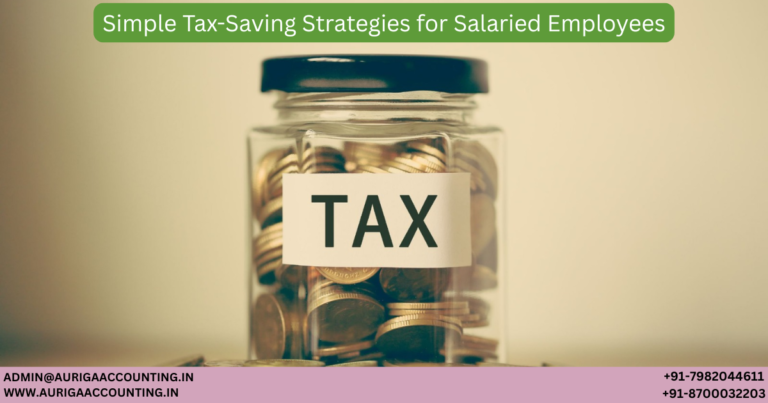Rohit is an accomplished writer known for her ability to simplify complex legal topics into clear, practical insights. Her content equips entrepreneurs with the essential knowledge to confidently navigate business laws, helping them launch and manage their ventures with greater ease and clarity.

ITAT Ruling Clarifies Taxation of Cryptocurrency: Profits Treated as Capital Gains
Introduction
ToggleIn a landmark decision for cryptocurrency taxation in India, the Income Tax Appellate Tribunal (ITAT) has ruled that profits earned from the sale of cryptocurrencies such as Bitcoin, Ethereum, and other Virtual Digital Assets (VDAs) are to be treated as capital gains rather than regular income. This ruling provides clarity on the tax treatment of cryptocurrency earnings, particularly for profits made prior to the formal introduction of cryptocurrency regulations in 2022
ITAT Ruling: Cryptocurrencies Classified as Capital Assets
The Income Tax Appellate Tribunal (ITAT) has confirmed that cryptocurrencies such as Bitcoin and Ethereum qualify as capital assets, aligning them with traditional assets like property, stocks, and bonds. This means that profits from the sale of cryptocurrencies will be taxed as capital gains rather than income. This clarification is especially important for transactions that took place before 2022 when India did not have a formal tax framework for digital assets. By applying the capital gains classification retrospectively, the ruling establishes a consistent and fair method for taxing cryptocurrency transactions during that period.
Pre-2022 Cryptocurrency Transactions
The ITAT ruling holds particular significance for individuals and entities who sold cryptocurrencies prior to the April 2022 introduction of Virtual Digital Asset (VDA) tax regulations. Profits from these sales must now be classified as either:
Short-Term Capital Gains (STCG): If the cryptocurrency was held for less than 36 months (3 years), profits are taxed as short-term capital gains.
Long-Term Capital Gains (LTCG): If held for more than 36 months, long-term capital gains tax rates apply, which may offer more favorable tax treatment
Post-2022 Cryptocurrency Transactions
Starting April 1, 2022, India introduced a new tax regime for cryptocurrencies:
Flat 30% Tax Rate: All cryptocurrency profits are taxed at a flat 30%, regardless of the holding period.
No Exemptions or Deductions: Taxpayers cannot claim exemptions or deductions beyond the cost of acquisition when calculating taxable profits from VDAs.
No Loss Offsets: Losses from cryptocurrency transactions cannot be set off against other income or carried forward to future years.
This updated framework simplifies taxation but removes the preferential treatment for long-term holdings by applying a uniform tax rate across all transactions.
Long-Term Capital Gains Benefits for Pre-2022 Sales
For taxpayers who held cryptocurrencies for over three years before the 2022 regulations, the ITAT ruling allows for potential long-term capital gains tax benefits. Since LTCG rates are typically lower than short-term rates, this offers some tax relief to those who sold after long-term holdings.
Key Takeaways from the ITAT Ruling
Uniform Tax Treatment: The ruling standardizes the taxation of cryptocurrency profits as capital gains for pre-2022 sales.
Greater Clarity: Both taxpayers and tax authorities now have a clear framework to report cryptocurrency profits during the period before formal regulations existed.
Simplified Post-2022 Taxation: The flat 30% tax rate introduced in 2022, while eliminating long-term holding benefits, creates a straightforward and enforceable tax system for digital assets.
About the Author
Rohit
February 21, 2026
new
January 10, 2026
January 8, 2026
January 8, 2026
January 8, 2026
January 8, 2026
January 8, 2026
January 7, 2026
January 7, 2026
January 7, 2026
January 7, 2026
January 7, 2026
January 7, 2026
January 7, 2026
January 6, 2026
January 6, 2026
January 2, 2026
January 2, 2026
December 31, 2025
December 31, 2025
December 31, 2025
December 29, 2025
December 29, 2025
December 29, 2025
December 29, 2025
December 29, 2025
December 27, 2025
December 27, 2025
December 27, 2025
December 26, 2025
December 26, 2025
December 26, 2025
December 16, 2025
December 16, 2025
December 15, 2025
December 13, 2025
December 13, 2025
December 12, 2025
December 12, 2025
November 29, 2025
November 29, 2025
November 29, 2025
November 28, 2025
November 28, 2025
November 28, 2025
November 28, 2025
November 27, 2025
November 27, 2025
November 27, 2025
November 27, 2025
November 27, 2025
November 27, 2025
November 26, 2025
November 26, 2025
November 26, 2025
November 26, 2025
November 25, 2025
November 25, 2025
November 25, 2025
November 25, 2025
November 24, 2025
November 24, 2025
November 24, 2025
November 24, 2025
November 24, 2025
November 21, 2025
November 21, 2025
November 21, 2025
November 21, 2025
November 20, 2025
November 20, 2025
November 20, 2025
November 20, 2025
November 20, 2025
November 20, 2025
November 20, 2025
November 19, 2025
November 19, 2025
November 19, 2025
November 17, 2025
November 17, 2025
November 15, 2025
November 15, 2025
November 15, 2025
November 13, 2025
November 13, 2025
November 13, 2025
June 16, 2025
June 16, 2025
June 14, 2025
June 14, 2025
June 13, 2025
June 13, 2025
June 11, 2025
June 11, 2025
June 11, 2025
June 10, 2025
June 9, 2025
June 9, 2025
June 5, 2025
June 5, 2025
June 5, 2025
June 5, 2025
June 5, 2025
June 5, 2025
June 5, 2025
June 5, 2025
June 4, 2025
June 4, 2025
June 4, 2025
June 3, 2025
June 3, 2025
June 3, 2025
May 31, 2025
May 31, 2025
May 31, 2025
May 31, 2025
May 31, 2025
May 30, 2025
May 30, 2025
May 30, 2025
May 30, 2025
May 29, 2025
May 29, 2025
May 29, 2025
May 29, 2025
May 28, 2025
May 28, 2025
May 28, 2025
May 28, 2025
May 27, 2025
May 27, 2025
May 27, 2025
May 27, 2025
May 27, 2025
May 26, 2025
May 26, 2025
May 26, 2025
May 26, 2025
May 26, 2025
May 24, 2025
May 24, 2025
May 24, 2025
May 24, 2025
May 24, 2025
May 23, 2025
May 23, 2025
May 23, 2025
May 23, 2025
May 23, 2025
May 23, 2025
May 23, 2025
May 23, 2025
May 22, 2025
May 22, 2025
May 22, 2025
May 22, 2025
May 21, 2025
May 21, 2025
May 21, 2025
May 21, 2025
May 21, 2025
May 20, 2025
May 17, 2025
May 17, 2025
May 17, 2025
May 17, 2025
May 16, 2025
May 16, 2025
May 16, 2025
May 15, 2025
May 15, 2025
May 15, 2025
May 14, 2025
May 13, 2025
May 13, 2025
May 13, 2025
May 13, 2025
May 13, 2025
May 12, 2025
May 12, 2025
May 12, 2025
May 12, 2025
May 10, 2025
May 10, 2025
May 10, 2025
May 10, 2025
May 9, 2025
May 9, 2025
May 9, 2025
May 9, 2025
May 9, 2025
May 8, 2025
May 8, 2025
May 8, 2025
May 8, 2025
May 8, 2025
May 8, 2025
May 8, 2025
May 7, 2025
May 7, 2025
May 7, 2025
May 7, 2025
May 7, 2025
May 7, 2025
May 6, 2025
May 5, 2025
May 5, 2025
May 5, 2025
May 3, 2025
May 3, 2025
May 3, 2025
May 3, 2025
May 3, 2025
April 30, 2025
April 30, 2025
April 29, 2025
April 28, 2025
April 28, 2025
April 28, 2025
April 28, 2025
April 26, 2025
April 26, 2025
April 26, 2025
April 26, 2025
April 26, 2025
April 25, 2025
April 25, 2025
April 24, 2025
April 23, 2025
February 1, 2024
October 30, 2023
October 30, 2023
October 30, 2023
October 30, 2023
October 28, 2023
October 28, 2023
October 28, 2023
October 28, 2023
October 28, 2023
October 28, 2023
October 28, 2023
October 28, 2023
October 28, 2023
October 27, 2023
October 27, 2023
October 27, 2023
October 27, 2023
October 27, 2023
October 27, 2023
October 27, 2023
October 27, 2023
October 26, 2023
October 26, 2023
October 26, 2023
October 26, 2023
October 26, 2023
October 23, 2023
October 23, 2023
October 23, 2023
October 23, 2023
October 23, 2023
October 23, 2023
October 23, 2023
October 23, 2023
October 23, 2023
October 23, 2023
October 23, 2023
October 23, 2023
October 23, 2023
October 23, 2023
October 23, 2023
October 21, 2023
October 21, 2023
October 21, 2023
October 21, 2023
October 21, 2023
October 21, 2023
October 21, 2023
October 21, 2023
October 21, 2023
October 21, 2023
October 21, 2023
October 21, 2023
October 21, 2023
September 7, 2023
September 7, 2023
September 6, 2023
September 6, 2023
September 5, 2023
September 5, 2023
September 5, 2023
September 5, 2023
September 4, 2023
September 4, 2023
September 4, 2023
September 4, 2023
September 1, 2023
September 1, 2023
September 1, 2023
September 1, 2023
August 30, 2023
August 30, 2023
August 30, 2023
August 29, 2023
August 29, 2023
August 29, 2023
August 29, 2023
August 28, 2023
August 28, 2023
August 28, 2023
August 28, 2023
August 28, 2023
August 26, 2023
August 26, 2023
August 26, 2023
August 26, 2023
August 25, 2023
August 25, 2023
August 25, 2023
August 25, 2023
August 24, 2023
August 24, 2023
August 24, 2023
August 24, 2023
August 22, 2023
August 22, 2023
August 22, 2023
August 22, 2023
August 22, 2023
August 21, 2023
August 21, 2023
August 21, 2023
August 21, 2023
RELATED ARTICLES
Key Reasons...
Simple Tax-Saving...
Tax Saving...
Section 80GGA:...
Guide to Income...
How to Verify...
Handling Income...
No posts found












